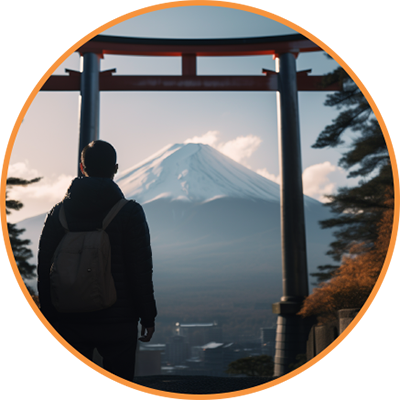We 门房和学生

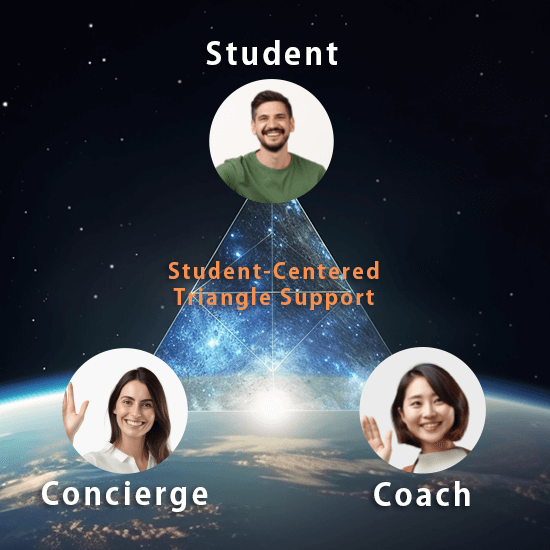
三角支架
在 "We",我们相信三位一体的支持能够优化每个学生的学习体验。学生是三角形的一个顶点,另外两个顶点分别是我们的专职管家和专业教练。这确保了一个全面的支持系统,其中礼宾了解学生的需求,并将其有效地传达给教练,从而确保量身定制的课程。有了这三大支柱的共同作用,我们就能确保提供精简、高效和个性化的学习旅程。

礼宾团队
我们的礼宾团队是学生和教练之间的桥梁。他们经过严格培训,了解学生的不同需求,确保无缝沟通、及时安排和有效解决问题。 We的礼宾团队不遗余力地了解每个学生的愿望,为他们安排合适的资源和教练。他们积极主动的工作方式确保了每一个后勤细节都能得到妥善管理,让学生能够专注于自己的学习之旅。
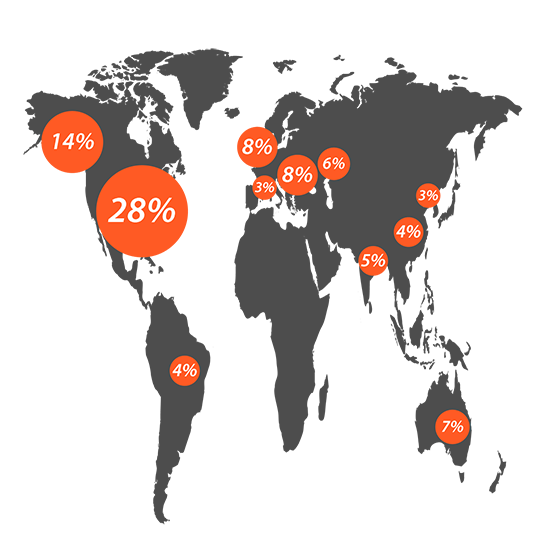
全球学生
We很荣幸能为全球热衷学习的社区提供服务。我们的学生来自不同的文化和语言背景,因此我们的平台成为了全球视角的大熔炉。这种多样性不仅丰富了课堂环境,还培养了一个让学生获得跨文化见解和拓宽世界观的社区。无论来自何方,"我们 "的每一位学生都因对语言和文化探索的共同热情而团结在一起。
让我们的礼宾服务为您节省时间和精力
We Languages 是高端在线日语学校,您的私人语言管家在这里等着您,让您的学习效率最大化。我们不同于一般在线语言学校的随机师生配对方式。相反,我们根据您的需求提供可持续的配对,让您不必像抽签一样寻找合适的教练。让我们经验丰富的礼宾人员为您的日语之旅提供指导,为您处理后勤事务,让您可以专注于语言和文化探索。

Student's Nationality
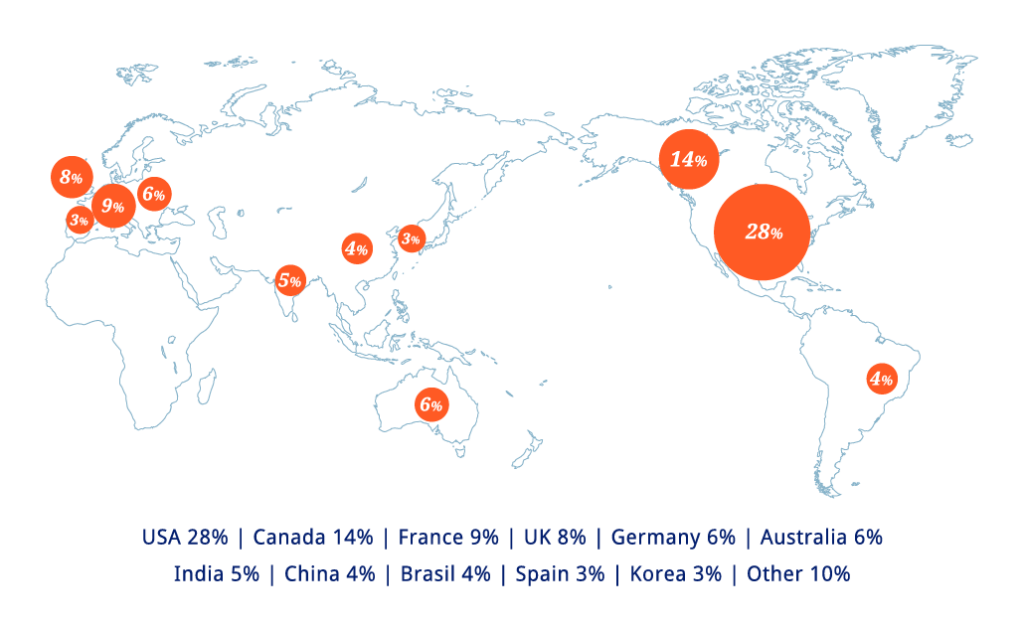
在 We Languages,我们满怀激情地通过充满活力的在线平台,将日语的精髓带给全世界的学习者。我们的数字大门欢迎来自繁华的北美大都市、历史悠久的欧洲中心地带、充满活力的亚太地区和文化底蕴深厚的亚洲地区的学生,形成一个日语爱好者的全球社区。
我们的学生来自美国、加拿大和许多欧洲国家,包括充满艺术气息的法国、充满活力的英国和勤劳的德国。我们还以培养来自阳光明媚的澳大利亚和亚洲各国的学生为荣,每个国家都有着独特的历史和文化。
我们语言学校的核心优势在于我们的适应性和坚定不移的承诺,以满足不同学生群体独特的 "日本需求"。我们通过卓越的日语教学,确保为学生营造一个有利的学习环境,促进文化同化。
在相互联系日益紧密的数字世界中,We Languages 所做的不仅仅是教授日语。我们正在搭建全球桥梁,拆除文化壁垒,积极促进多元文化社会的发展。与我们一起踏上日语之旅,探索一个无国界的学习世界。
学生职业
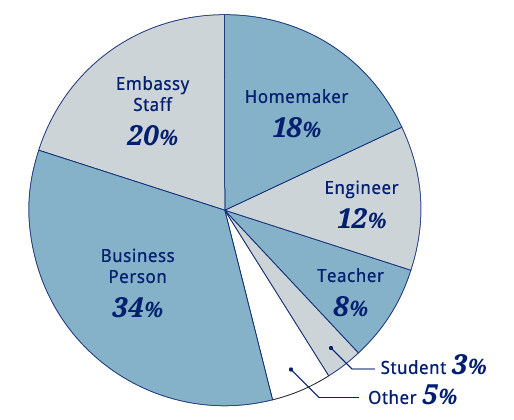
- 业务人员 34%
- 使馆工作人员 20%
- 家庭主妇 18%
- 工程师 12%
- 教师 8%
- 学生 3%
- 其他 5%(医生、律师、工作假期、儿童、 etc.)
在 We Languages,我们的学生来自各行各业。尽管工作繁忙,但他们仍挤出时间潜心学习日语。我们灵活的学习系统就是为这些活跃的学习者而设计的,让他们可以根据自己繁忙的日程安排来调整日语学习。
我们深知语言学习的关键在于连贯性,我们精心设计的课程保证您无论日程多么紧凑,都能朝着语言目标稳步前进。每门课程的结构都确保即使是最忙碌的人也能以适合自己的速度掌握日语。
对于已过中级阶段的学员,我们的商务日语课程为他们提供了掌握适用于专业环境的实用日语技能的机会。学习掌握日本商务礼仪的细微差别,与日本同事有效沟通,在当今全球化的职场中获得优势。
在 We Languages,我们不仅教授日语,我们还致力于让每个人,无论从事何种职业,都能轻松、愉快、高效地学习语言。现在就加入 We Languages,让自己沉浸在日语的魅力世界中。
学生水平

We Languages欢迎各种类型的学生,从初学日语的学生到已经精通日语细微差别的学生。我们认识到并接受日语教育的最新趋势,即越来越多的学生已经达到中级或高级水平。
我们的课程就是为满足这一不断变化的人群的需求而量身定制的。我们看到高级水平的学生人数激增,其中许多人渴望通过深入学习商务日语来进一步提高语言技能。本专业课程旨在让这些高级学员掌握实用的高级日语,并能直接应用于专业领域。
在 We Languages,我们尊重学生语言水平的多样性。无论您是急于学习基本短语的初学者,还是准备应对复杂的日语商务交流的高级学习者,我们灵活、可定制的课程都能满足您在语言学习过程中的各种需求。
加入 We Languages,在日语学习的每一个阶段都能发现无限可能。
企业客户

学生个人
商务人士
我们提供量身定制的学习方法,以满足商务人士的需求,减少他们在日本就业时的日语障碍。
Mr. Hendrik Aschermann (Germany)
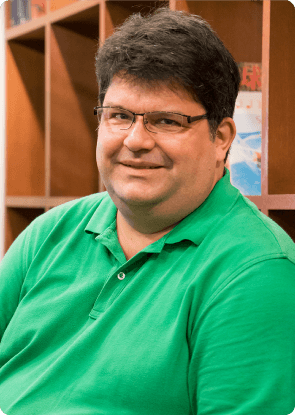
Q. 您学习日语的目的是什么?
A. I started learning Japanese because I felt that some Japanese knowledge would make daily life in Tokyo much easier.
Q. 哪方面促使你选择了《我们》?
A. The system of lesson points plus the location in Shibuya.
Q. 如何在(与)"We "一起学习日语?
A. I am joining Group, plus private classes.
Q. 您如何利用在我们这里学到的日语?
A. Usually in daily life and while traveling in Japan. It's very useful at restaurants, hotels, and car rental agencies.
Q. 您对打算开始学习日语的人有什么忠告?
A. Learning Japanese is hard but rewarding. Keep going!
Ms. Chris Rowley (United States of America)
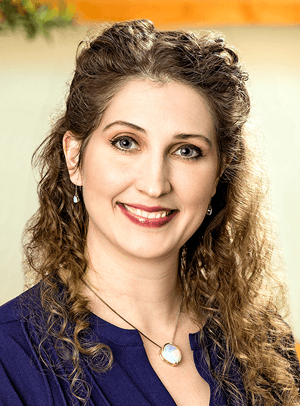
Q. 您学习日语的目的是什么?
A. Being on a three-year assignment here in Japan, it is important to me to work effectively with my work colleagues and live a full life here. When people don't speak the same language, it can be an immense barrier to being able to contribute to life and work fully. Even if I can't speak or communicate perfectly, learning as much as I can about how Japanese view the world and interpret information helps me be effective with my work and the recommendations I make.
Q. 哪方面促使你选择了《我们》?
A. To me, flexibility was an important factor and a need for a more customized learning approach. I have been learning Japanese for about 15 years, and standard classes are no longer convenient. Combining that with having a demanding work schedule and the We Point system approach made sense to me.
Q. 如何在(与)"We "一起学习日语?
A. Twice a week, I have lessons with instructors on a 1:1 basis. One instructor focused on reading comprehension and grammar, and the other on listening comprehension. The end goal was to take the Level 1 BJT exam, so questions and lessons were focused on the kinds of questions that would appear in that exam.
Q. 您如何利用在我们这里学到的日语?
A. I use Japanese every day – some days more than others, but I use it both privately and professionally. Keigo has always been a weakness for me, so I always try to implement the lessons on using Keigo right away in my daily communication and make sure that I use it regularly. Sometimes my level of Keigo might be a bit off, but the important thing is that I keep it fresh and use it until it becomes a habit.
Q. 您对打算开始学习日语的人有什么忠告?
A. Don't be afraid to try and make mistakes, and most of all, don't be impatient with yourself! I make thousands of mistakes – with grammar, word choice, clarity, etc. Every day, but the important thing is that I keep trying to communicate and learn and grow along the way. There have been many times over the past year or so when I felt as though I hadn't made any progress, but I realized that I had improved a lot before I knew it. If I hadn't kept trying, I never would have made it this far despite my frustrations. And I know that every day, little by little, I will continue to get better because I keep trying, listening carefully to those around me, and pushing myself to try to communicate new and different things.
Mr. Fabio Tanaka (Brazil)
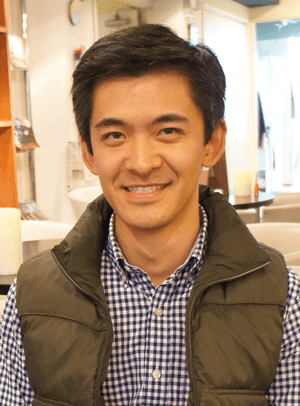
Q. 您学习日语的目的是什么?
A. I have been working in Japan for over two years and have started studying Japanese in order to be able to communicate with my customers. Since I work in Sales and Japan is one of our main markets in the Asia Pacific, I have to understand their needs, expectations towards our products and how we can deliver the best solutions to them. Since my grandparents were Japanese, I also wanted to learn more about the culture, history, and habits that defined my family's values – and, consequently, my own values.
Q. 哪方面促使你选择了《我们》?
A. I chose We because We offer the option of private classes customized to my own needs. In my case, first, I study Japanese business and email writing skills and techniques. After that, I decided to take the N2, and now I am studying to take the N1. I only succeeded because the classes could focus on my own needs (increasing vocabulary and emphasis on grammar rules).
Q. 如何在(与)"We "一起学习日语?
A. Nowadays, my classes are basically divided into two sessions: the first one with an emphasis on grammar and the second one on vocabulary. I learn new vocabulary forms every class, and then I practice at home writing small sentences using the forms learned that week. For the vocabulary class, I prestudy some chapters and check the meaning and utilization form of new words with my teacher. I also read news articles indicated by the teacher before every class and discussed the topic with her, learning new words in order to express my own opinion about the topic.
Q. 您如何利用在我们这里学到的日语?
A. Thanks to my Japanese improvement, I can currently participate in meetings with my customers and colleagues without using any words in English. Since my business partners can speak in their native language, they are usually more comfortable and open to discussing their business with me, so I have access to more important information than when I arrived in Japan.
It also helps me in my daily life in Japan, clearly understanding the news on the TV, on the internet, and whenever I need to use a service by phone in Japanese.
Q. 您对打算开始学习日语的人有什么忠告?
As with any other language, your progress will depend 70% on the activities you do outside the class. It would be best if you practiced as often as possible and every day. Watching the news, reading mangas (since the Kanjis have hiraganas), and talking to your colleagues about your home country, you must find opportunities to practice it. The advertisements inside the trains during your commute to work, the kanjis written on your utility bills, the labels of the products you shop for, anything can be an opportunity to practice your Japanese if you want to.
Choosing the Right School
Choosing the right school that understands your needs accelerates the process. We teachers always try to understand your needs and develop a study plan that suits your needs and preferences. The School's teachers, student partners, and staff also have a strong international background, so they understand how challenging living in Japan could be due to the cultural differences and have been very supportive since day one.
Mr. Derek O’Neil (Australia)
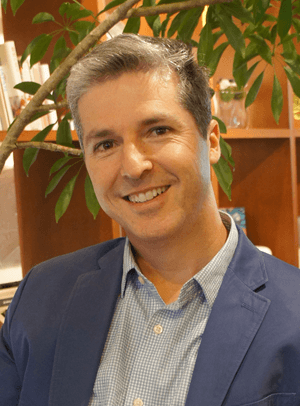
Q. 您学习日语的目的是什么?
A. My intent is to function in society without any language barrier and be comfortable using Japanese at work and in social settings.
Ultimately, I would like to become as fluent as best I can. Japanese is a great language. It's such a sophisticated, intricate, and complex language, making it a pleasure to study, so there is also an academic self-indulgence element to learning it.
Q. 哪方面促使你选择了《我们》?
A. Initially, I was first drawn to We due to the Shibuya location, which is convenient to both my work and home. After the trial lesson, I decided I liked the We Team as well, which made it an easy decision to start studying at We.
Q. 如何在(与)"We "一起学习日语?
A. I take two classes a week in private tuition. The classes' focus is a mixture of free-format conversation and some structured review of vocabulary and grammar. The intent of the unstructured conversation practice, where we are talking about whatever seems a good topic for the day, is to help me speak in Japanese, which I find to be the most challenging part of learning Japanese.
Q. 您如何利用在我们这里学到的日语?
A. I am using Japanese more and more days at work and around town, both to communicate on my own and – even better – I understand what is happening around me! Japanese has changed from being a series of sounds I could not understand to being able to comprehend the meaning of what people are saying to me and then being able to talk back! That progress with the language is very satisfying.
Q. 您对打算开始学习日语的人有什么忠告?
A. Japanese is a fantastic language to learn. Learning Japanese can seem daunting at first, but with practice and effort, and the rewards of succeeding, it becomes less daunting and a lot of fun. The team at We School has been fantastic in its efforts toward my Japanese study. They have helped me improve from an elementary level of being comfortable in Japanese.
Ms. Poppy Calvert (United Kingdom)
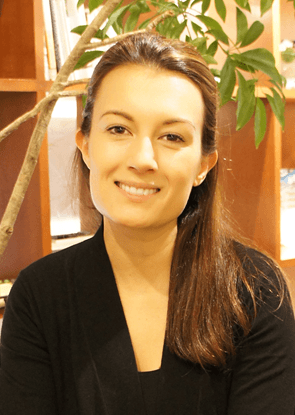
Q. 您学习日语的目的是什么?
A. I eventually want to take the JLPT level 1 and further my career in Japan.
Q. 哪方面促使你选择了《我们》?
A. Initially, I chose We for its convenient central Tokyo location. Still, its excellent and diverse choice of teachers, tailored lesson plans, and friendly atmosphere has kept me there for three years.
Q. 如何在(与)"We "一起学习日语?
A. The teachers have consistently worked hard to ensure that I have steadily improved through a mixture of private lessons and group language exchanges.
Q. 您如何利用在我们这里学到的日语?
A. With thanks to my teachers at We, I passed the JLPT level 3 in 2014, and they are preparing me to take level 2. My teachers have given me the confidence to apply my language skills at work and in Japan's personal life.
Q. 您对打算开始学习日语的人有什么忠告?
A. Learning Japanese has been the best thing I've ever done. It has given me valuable insight into a different culture and has revealed new things about my own culture. Have fun with it, practice using it as much as possible, and don't be scared to make mistakes.
Mr. Andrew Walsh (United States of America)
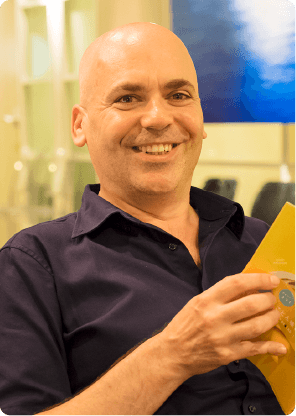
Q. 您学习日语的目的是什么?
A. My aims in learning Japanese are to become independent as possible and avoid preferential and differential treatment. I want to be treated like anyone else in Japan. To do so, I need to speak appropriately and choose the right words, register, etc.
Q. 哪方面促使你选择了《我们》?
A. My answer to this question is somewhat connected to the first question. When in the first contact with the school staff, I asked them to respond in Japanese, and they did. Based on this, I made my decision to become a student here.
Q. 如何在(与)"We "一起学习日语?
A. I take about two classes a week. I would say that about 80 percent of what I bring to the classroom comes from what I do outside the classroom. Along with the other students, I share these experiences in class and learn strategies on how to deal with these situations in Japanese.
Q. 您如何利用在我们这里学到的日语?
A. I can't say how, but nowadays, I seem to have an easier time expressing myself and getting the things I want without offending people. I don't work for a Japanese company, so I have fewer speaking opportunities than someone who does. Therefore, I try to get into as many "adventures" as possible. The classroom prepares me for these adventures. And vice versa.
Q. 您对打算开始学习日语的人有什么忠告?
A. If you decide to take a class, make sure you are ready for that class. This involves having a life outside of the classroom. It would be best if you came to the School with questions and experiences in hand. Also, be prepared to feel foolish. You will make mistakes and say silly things. Make sure you correct these. This is the learning process.
家庭主妇
我们通过让他们学习日语和日本文化,将他们的生活从家中顺利过渡到日本,真正将他们与日本联系在一起。
Mrs. Leah Cassidy (United Kingdom)
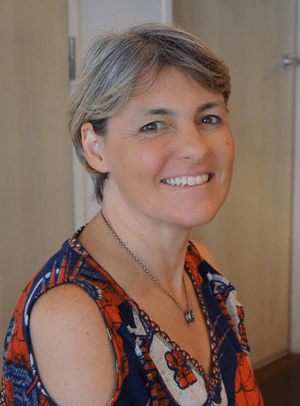
Q. 您学习日语的目的是什么?
A. I moved to Tokyo, having no Japanese at all. I didn't feel comfortable living here without making an effort to learn the language. I wanted to understand some Japanese and be able to do the basics in everyday life without trying to say it louder, but still in English!
Q. 哪方面促使你选择了《我们》?
A. I trialed a couple of different companies before deciding on We. I liked the learning format they used and the flexibility that I could have to juggle school holidays and work! Also, the staff is accommodating and patient!
Q. 如何在(与)"We "一起学习日语?
A. I attend a small group session with people in a similar position. I try to review the work I have done before my next session to improve my next class participation.
Q. 您如何利用在我们这里学到的日语?
A. I use it most days in the supermarket to have brief conversations with the cashier, even about the weather! I can direct a taxi, which I was so excited about! I make reservations in restaurants and can sometimes read the menus if there's not too much kanji!
Q. 您对打算开始学习日语的人有什么忠告?
A. Don't be scared! It is very rewarding once you learn a few basic things (which will happen in your first lesson at We!!). Learn your hiragana and katakana as soon as you can. It will surprise you how helpful it is in everyday life as well as the classes. Japanese people appreciate that you are making an effort to learn their language.
Mrs. Caroline Ruck (Germany)
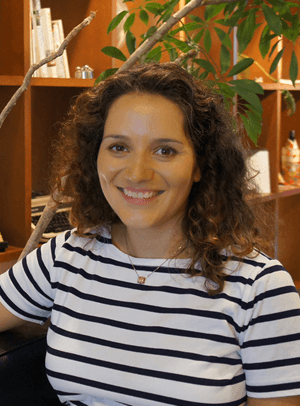
Q. 您学习日语的目的是什么?
A. generally, I wouldn't say I like the idea of living in a different country and not making an effort to learn the language. It is key to understand the culture and the people and to get around. Anyone who has the opportunity to study a new language should use it. Since I grew up in Europe, it always made sense to know a few other languages more than my mother tongue.
Q. 哪方面促使你选择了《我们》?
A. "We" was recommended to me, and after searching for language schools online, this one made the best effort. Also, I liked the very warm and welcoming atmosphere of the school facilities.
Q. 如何在(与)"We "一起学习日语?
A. After finishing a 10-week intensive course, I am now polishing key topics with private lessons.
Q. 您如何利用在我们这里学到的日语?
A. Pretty much every day, whether for shopping, in restaurants, getting around, or talking to locals.
Q. 您对打算开始学习日语的人有什么忠告?
A. Don't be tricked by the idea of speaking and reading Japanese within a couple of months. Surely you will learn a lot, especially the most needed things, but it won't come naturally to you since it is unrelated to any European language. Still worth a try! 'Ganbatte!'
Mrs. Afag Aslanowa (Azerbaijan Republic)
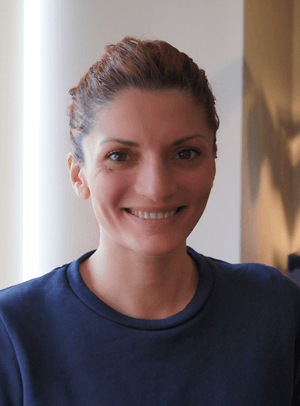
Q. 您学习日语的目的是什么?
A. My goal in learning Japanese was to be able to speak good/proper Japanese, to be able to read in Japanese, and, most importantly, to be able to find a job, as most of the hiring companies require Japanese.
Q. 哪方面促使你选择了《我们》?
A. Before coming to We, I spent a good few weeks researching online and visiting schools I've chosen (based on things they offer). After a few long and tiring interviews, I decided We because the atmosphere of the School was nothing like others, including the councilors and teachers.
Q. 如何在(与)"We "一起学习日语?
A. I've found out about We from the Internet.
Q. 您如何利用在我们这里学到的日语?
A. I'm lucky enough to speak Japanese with my family and friends, yet now after a few months in We, I finally understand more Japanese, be it through TV, radio, or books. I would never imagine myself being able to read, which makes me happy.
Q. 您对打算开始学习日语的人有什么忠告?
A. I think for a person to be successful in learning the language, he/she should first fall in love with the language, culture, and country as its whole. The more Japanese you speak, the more you can enjoy your life in Japan, no matter if you'll use it for a job or making friends. Japan is a wonderful country, and its people love to share their exciting stories, so try to look at it as a passion. In my country, there's a saying which means 'one language – one person,' thus, the more languages you speak, the more people you can talk to and learn from. Every country has its philosophy and beauty, and you'll never get to the depth of it as long as you don't know the language. Don't forget to enjoy your path and always speak to people, no matter how good or bad your Japanese is.
儿童与青少年
我们增强他们与人交流的信心,启发他们掌握学习日语的方法,以及在日本与家人一起生活时的身份认同。
Ms. Nalanda Pant Joshi (Republic of India)

Q. 您学习日语的目的是什么?
A. As a fashion student back in my country, I had always admired Tokyo for its unusual and exciting fashion trends, which triggered my interest in completing my further studies in Japan. My main reason for studying Japanese is to make a place in the university and make a meaningful career in Japan, for this Japanese language is the first milestone to be achieved.
Q. 哪方面促使你选择了《我们》?
A. 'We' provides its students the appropriate guidance through time-to-time counseling. 'We' has built my confidence in speaking Japanese not only inside but outside School. Constant support and hard work by the staff members is a unique feature of 'We.'
Q. 如何在(与)"We "一起学习日语?
A. At 'We,' I am given a periodic mini-test that judges my Japanese level, and accordingly, my study plan is made. Also, I am being made to take listening tests, which helps a lot.
Q. 您如何利用在我们这里学到的日语?
A. Being able to communicate in Japanese has made my life easier. I can convey my ideas to people, make reservations on the phone, and make conversations at the time of shopping.
Q. 您对打算开始学习日语的人有什么忠告?
A. My advice would be to put more emphasis on listening in terms of conversations made by the Japanese people, announcements made on the train, and, of course, watching short Japanese serials with English subtitles; doing so will make you familiar with the words and when you study them it becomes easier to grasp. Lastly, try to use Japanese whenever you get the opportunity.
Ms. Lin Yi-yan & Mr. Lee Ming-Wei (Taiwan)
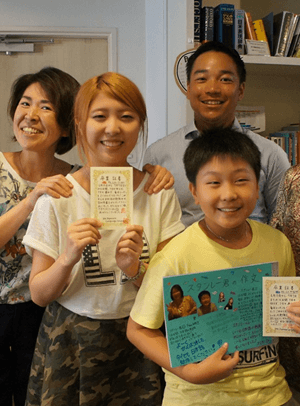
Q. 您学习日语的目的是什么?
A. we aim to enable Grace and Stanley to communicate in Japanese with confidence.
Q. 哪方面促使你选择了《我们》?
A. The fact that We have classes aimed at kids drove us to choose this school.
Q. 如何在(与)"We "一起学习日语?
A. Stanley learned Japanese in a two hours one-on-one class. Grace learned it in a two-and-a-half-hour intensive group class. Both of their Japanese improved rapidly through interaction with We Japanese teachers and staff.
Q. 您如何利用在我们这里学到的日语?
A. They stayed in Tokyo for a month during summer and effectively used the Japanese they learned in day-to-day situations immediately.
Q. 您对打算开始学习日语的人有什么忠告?
A. Japanese isn't the easiest language, but it isn't the hardest either. Hold onto your faith in language skills, and you'd like success!

